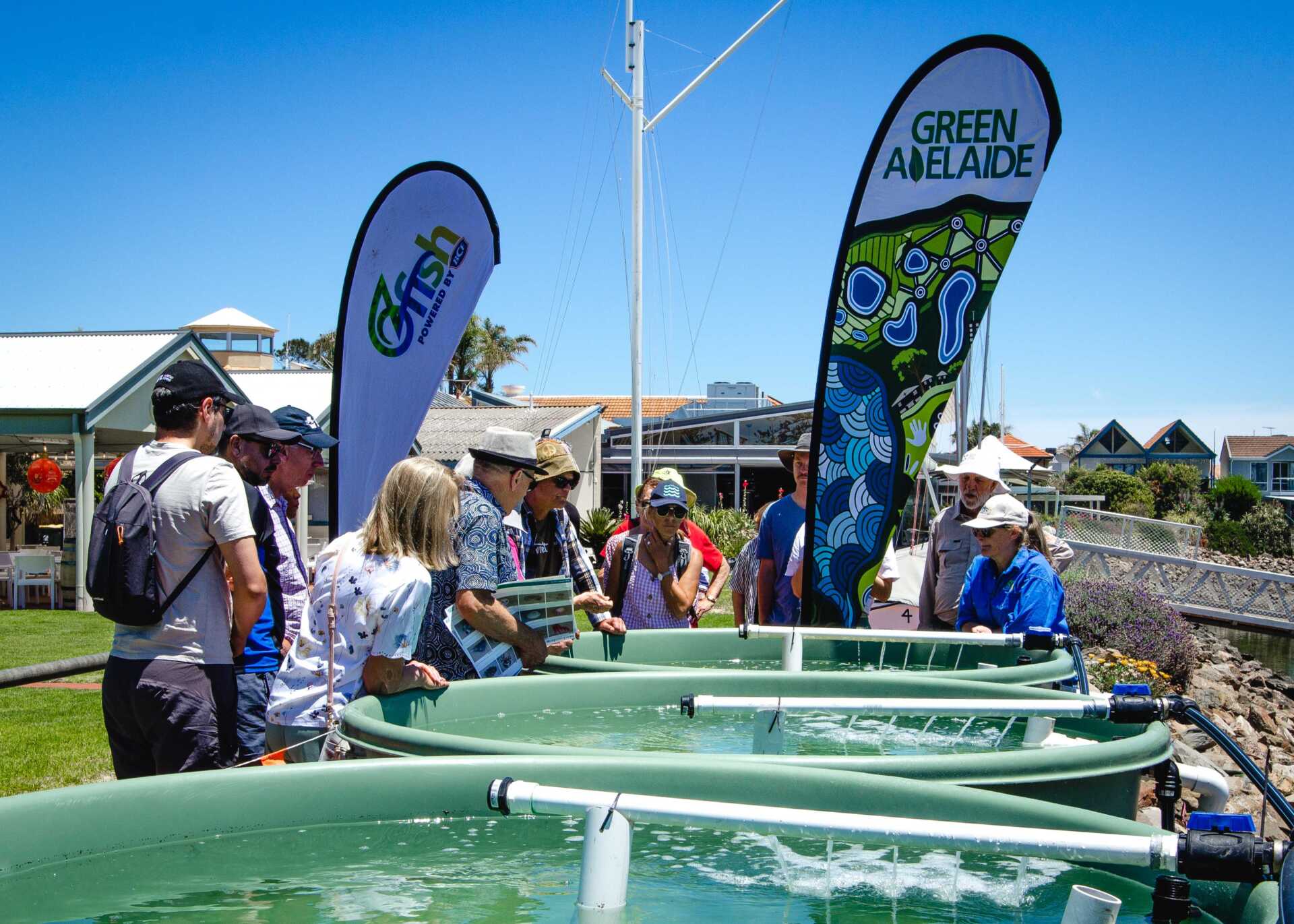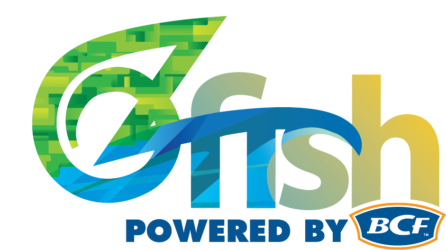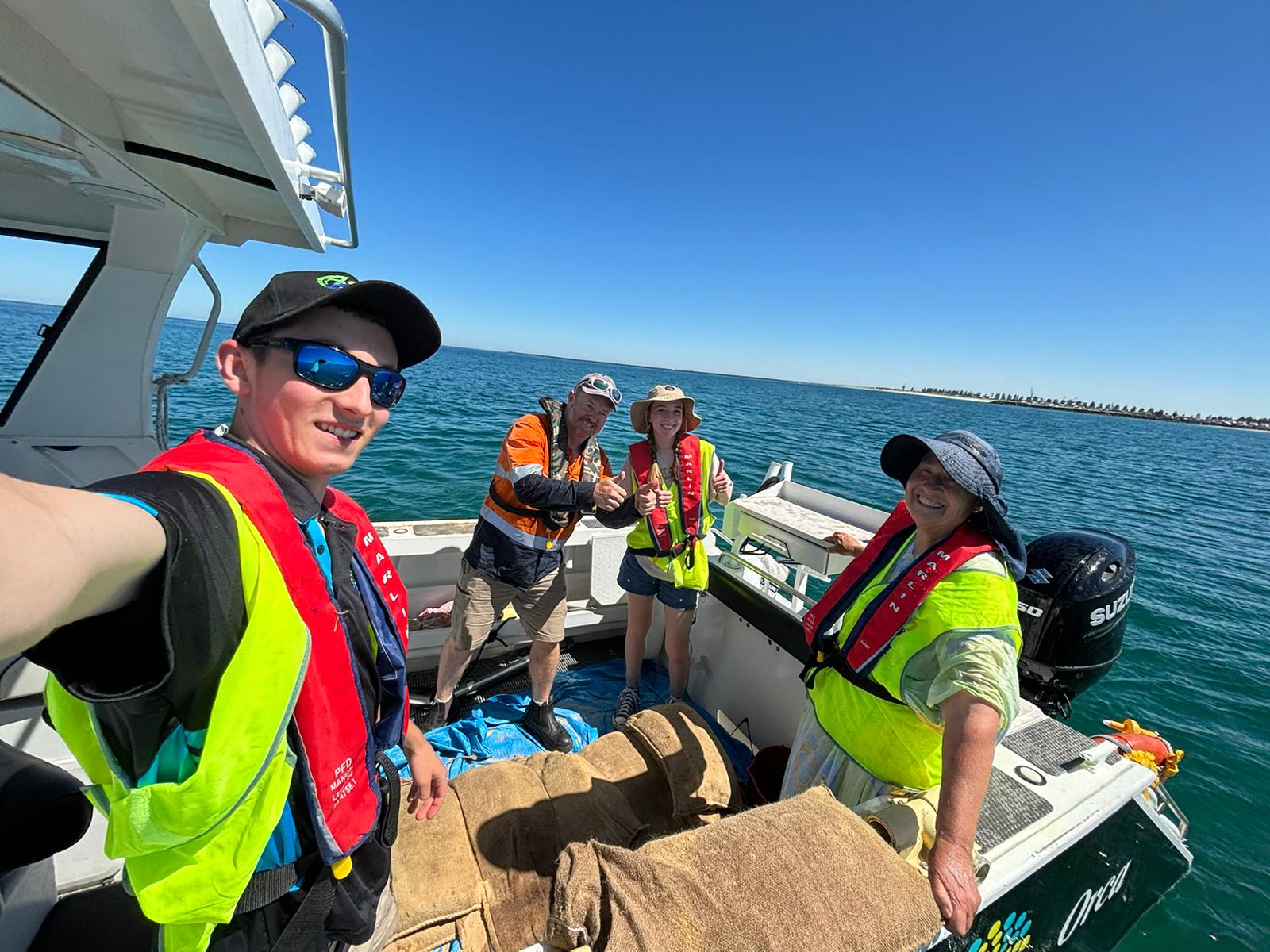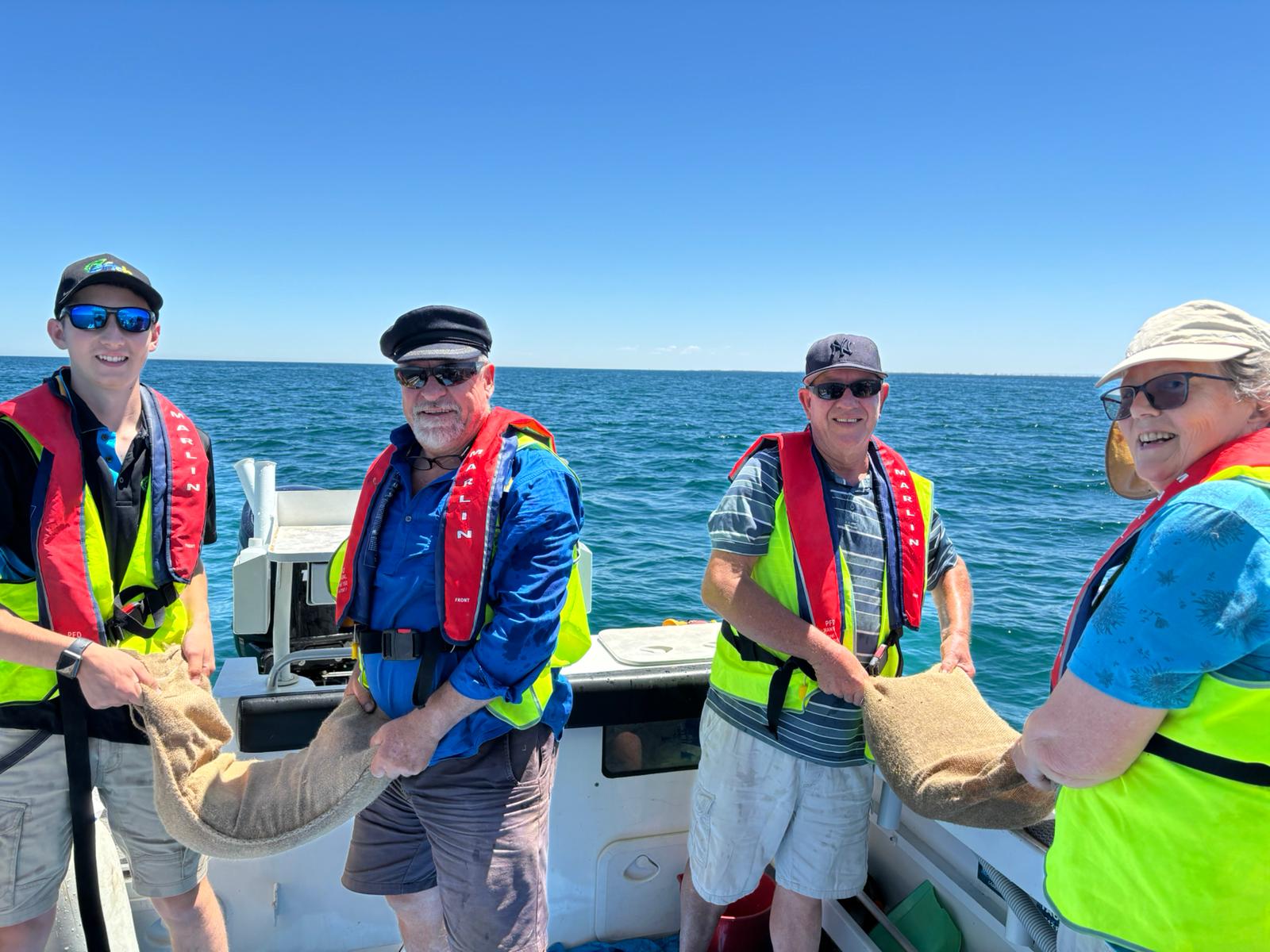Adelaide Seagrass Restoration Draws 450+ Volunteers

OzFish Unlimited has rallied the Adelaide community for the 2023 Seeds For Snapper seagrass restoration initiative and recruited hundreds of passionate volunteers to create a huge environmental impact despite challenging weather.
6 volunteer dates
13, 000 seeds collected and distributed
457 volunteers participated
Celebrated Yearly Event
South Australia’s fruiting seagrass has always marked the official start of the Seeds for Snapper program. Eighty enthusiastic community members attended the Adelaide season launch on December 1 at the beautiful Cruising Yacht Club of South Australia.
The event commenced with a profound Greeting to Spirit of Place by Burka-Senior Cultural Custodian Karl Winda Telfer, reminding us of the deep connection between our restoration efforts and the land’s cultural heritage.
Distinguished presenters such as Claire Lock from Green Adelaide, Associate Professor Jason Tanner from SARDI, Rachel Williams of OzFish SA, Lyndon Zimmermann from OzFish Adelaide Chapter, Karen Oaklands from BCF Port Adelaide, and Lidia Moretti from the United Nations shared a wealth of information with the attendees.
They offered valuable insights that emphasized this project’s environmental significance to South Australia’s fisheries and ecosystems.
A Stormy Year
Volatile weather ravaged Adelaide’s coastline during this year’s seagrass season. St Vincent Gulf is ordinarily calm, but high winds and heavy rains created turbulent seas that can knock fruits from the seagrass before they are mature Rachel Williams, Project Manager for OzFish South Australia, suggested that the unusual weather might be behind lower seed releases this year.
“Why the seed yield was lower is always going to be pure speculation as we don’t know the exact reasons,” she said. “It could be weather, tides or other reasons we have not identified.
Thank to years of research by SARDI, we already have valuable data on where seagrass is missing This project helps gather important data on seagrass fruit occurrence along our beaches, including when and where it washes up which, can then be correlated to other environmental data.
This year volunteers found seeds on new beaches, and filled gaps in our knowledge. Despite the slow season, all data is good data.”
Seagrass provides essential habitat for various marine species and nursery grounds for snapper, calamari, whiting, and blue swimmer crabs. It also stabilises sand and sediment on the ocean floor, so gathering knowledge is vital to understanding how to make this fishery more productive.
Huge Community Engagement
While seagrass seeds didn’t show up in record numbers, the volunteers did. This project held six event days, each attracting 25 – 30 people each time.
“The events are weather dependant, so we only give volunteers about two days’ notice,” explains Williams. “It’s incredible to get 30 people to show up after such little warning, and it’s a testament to their passion at such a busy time of year. People just love this project.”
Part of the reason Rachel believes there’s such a strong community buy-in is because this project is so different.
“This is revegetation but is unique because it’s in the ocean, and let’s face it, the yacht club is also a very nice place to hang around. A tremendous social element has developed, and people get to contribute to all aspects of the project.
There’s continued community engagement after 4 years, and now the people who started have become trainers who occupy senior roles. We also have numerous university marine biology students who share their knowledge with the volunteers.”
The project got plenty of return volunteers because there are a variety of tasks that people of varying physical abilities can join in, from retirees to young families.
These efforts are a powerful call to environmental stewardship that will help restore Adelaide’s local seagrass meadows for future generations to enjoy.
Seeds for Snapper in Adelaide is funded by Green Adelaide and BCF – Boating, Camping, Fishing. Project partners include South Australian Research and Development Institute, RecFish SA, Cruising Yacht Club of South Australia, Estuary Care Foundation, and Aquatic Biosecurity.





